| Gemstone Chart |
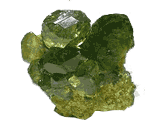 Natural Demantoid Natural Demantoid
The demantoid is one of the most brilliant gemstones that exist, yet until recently it was little known except among collectors and gemstone lovers.
Color: Green, yellow green.
Categories: semi-precious stone
Chemical Composition: Ca3Fe2(SiO4)3
Crystal Group: Cubic
Refractive Index: 1.888 - 1.889
Hardness: 6.5
Density: 3.82 - 3.50
Occurrence: Russia, Namibia, Iran, South Africa
| 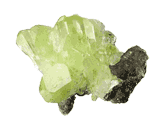 Natural Diopside Natural Diopside
Diopside is a common mineral and is found worldwide. Diopside has several varieties, including a chromium-rich gem variety called chrome diopside.
Color: pale bluish green or dark blue green, brownish green or dark blue green. yellowish green or yellow bluish green.
Categories: semi-precious stone
Chemical Composition: CaMgSi2O6
Crystal Group: Monoclinic
Refractive Index: 1.665 - 1.730
Hardness: 6
Density: 3.25 - 3.55
| 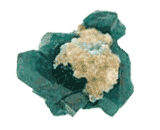 Natural Dioptase Natural Dioptase
Dioptase is an intense emerald-green to bluish-green copper cyclosilicate mineral.Dioptase is a rather unusual gemstone that will rarely be found in your basic jewelry stores. It is a beautiful gemstone with a very unusual combination of green colors.
Color: Dark blue green, emerald green, or turquoise
Categories: semi-precious stone
Chemical Composition: CuSiO2(OH) 2
Crystal Group: Hexagonal
Refractive Index: RI 1.644 ¨C 1.709
Hardness: 5
Density: 3.28 ¨C 3.55
Occurrence: Russia, Tsumeb Namibia, California and Colorado USA, Congo, Zaire, Chile
| 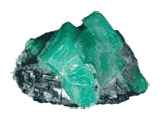 Natural Emerald Natural Emerald
Emerald, the green variety of the mineral beryl, is the most famous and favored green gemstone.The majority of the worlds gem quality Emeralds come from the Muzo area of Colombia.
Color: Blue, Green Blue
Categories: precious stone
Chemical Composition: Be3Al2(SiO3)6
Crystal Group: Hexagonal
Refractive Index: 1.577(+-.016), 1.583 (+-.017)
Hardness: 7.5-8
Density: 2.72 (-.05, +.12)
Occurrence: Brazil, Pakistan,Russia, East Africa, India, Madagascar, Columbia
| 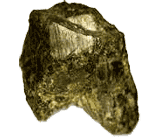 Natural Enstatite Natural Enstatite
Enstatite is a relatively common mineral, but is rarely used for jewelry purposes. It is generally cut for gem connoisseurs and collectors rather than for the common consumer.
Color: Gray, green, brown, orange-brown, yellowish-brown, colorless, pale yellow.
Categories: semi-precious stone
Chemical Composition: MgSiO3
Crystal Group: Orthorhombic
Refractive Index: 1.663-1.673
Hardness: 5.5
Density: 3.26-3.28
Occurrence: South Africa, Burma, Tanzania, Sri Lanka, Kenya, Germany, Norway, Greenland
| 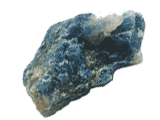 Natural Euclase Natural Euclase
Euclase is a rare mineral, resembling beryl in color and hardness.Euclase is found in granitic pegmatites with other gem minerals such as topaz and beryl.
Color: White, pale blue, greenish blue, dark blue.
Categories: semi-precious stone
Chemical Composition: BeAlSiO4(OH)
Crystal Group: Monoclinic
Refractive Index: 1.652-1.672
Hardness: 7.5
Density: 3.18
Occurrence: Brazil, Tanzania, Russia, Zimbabwe, Madagascar, Austria.
| 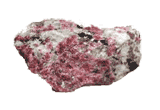 Natural Eudialyte Natural Eudialyte
eudialyte is a rare, plummy-red stone. Eudialyte's name comes from the Greek words "eu" and "dialytos", meaning "easy to dissolve" which refers to the mineral's solubility in acids.The stone's distinctive grey, black or white patterning gives each piece of jewelry a unique beauty.
Color: orange red
Categories: semi-precious stone
Crystal Group: Trigonal
Refractive Index: 1.596 - 1.602
Hardness: 5 - 6
Density: 2.88
Occurrence: Sweden; Kippaw,Canada
| 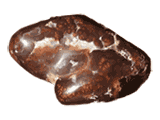 Natural Fire Agate Natural Fire Agate
Fire Agate is a variety of agate containing inclusions of goethite or limonite, it is a layered stone. The layers are small enough that light entering them forms interference colors known as "fire."
Color: Orange, green, purple, Red, blue, peacock
Categories: semi-precious stone
Chemical Composition: SiO2
Crystal Group: Trigonal
Refractive Index: 1.544 - 1.553
Hardness: 7
Density: 2.65
Occurrence: Central Mexico, Arizona USA
|
|
|




